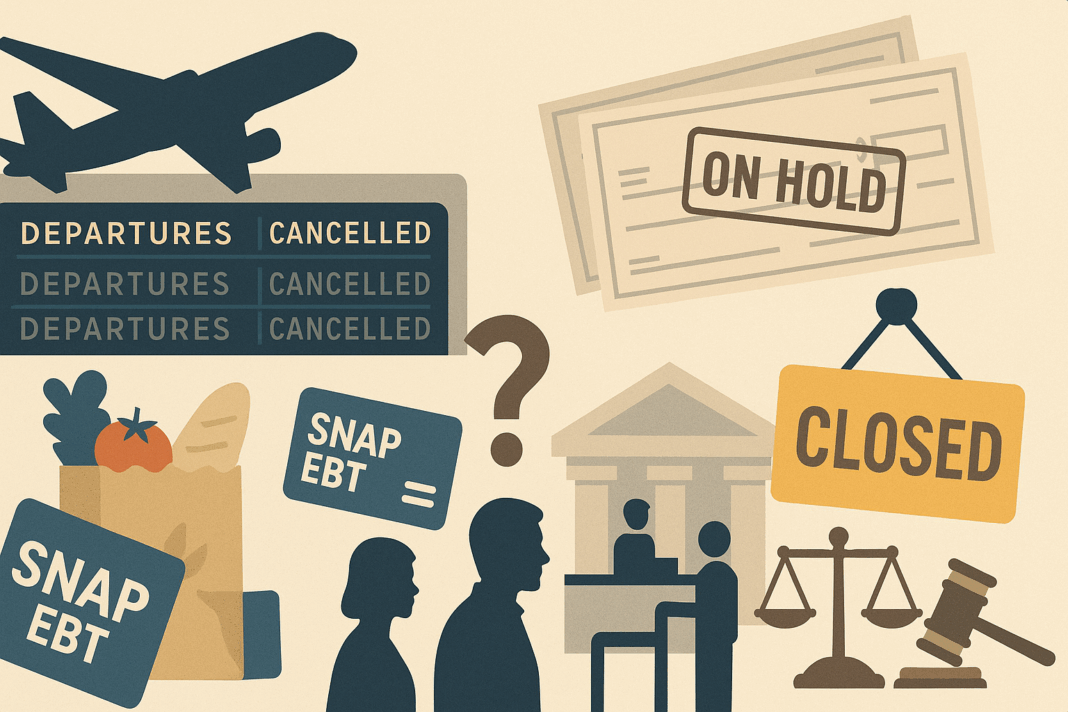Air travel told the story first. Airlines began trimming schedules at 40 major airports after an FAA order to ease pressure on unpaid controllers; at least 1,000 flights were canceled Friday, according to the Associated Press. The reductions start around 4% at the busiest hubs and are set to reach 10% next week. Safety demands it.
Federal workers are bearing the brunt. Paychecks have stopped for hundreds of thousands required to report anyway. Nearly 4.5 million paychecks could be withheld if the stalemate drags on, according to the Bipartisan Policy Center. Missed rent, mounting credit-card balances, and longer hours for “excepted” staff are now routine.
Contractors have even less cushion. Backlogs of unpaid invoices, halted projects, and layoffs are spreading across small and mid-sized firms that serve federal missions, reported by Federal News Network. Unlike federal employees, many of these workers do not get back pay when the government reopens.
Food assistance has become a legal and logistical roller coaster. A lower-court order to deliver full November SNAP benefits collided with a late-day administrative stay from the Supreme Court, reported by Reuters. The whiplash has left some 42 million people, many of whom are youngsters and pensioners, unsure about their groceries this month, as the AP has pointed out. Households that plan week to week cannot plan at all without predictable aid.
Air transportation is bracing for worse if controller fatigue and absenteeism grow. Crews and gate agents absorb passenger frustration while airlines rework rotations to keep the system from buckling, according to the AP. Delays compound. Missed connections cascade. The cost is measured in missed shifts, lost sales, and frayed patience.
Other cracks are visible. National parks are operating unevenly under contingency plans, according to the U.S. Interior Department/National Park Service. Federal courts shifted to limited operations after exhausting fee balances, according to the U.S. Courts. Cancer centers warn that clinical research and patient access are slowing, cited by the Association of American Cancer Institutes. And small-business lending is frozen at scale, according to the U.S. Small Business Administration.
The economic damage adds up. Lost output doesn’t fully snap back, even when pay is restored. The current lapse could peel $7–$14 billion from growth depending on how long it persists, reported by Reuters.
This is not a political exercise; it’s a stress test the country is failing. Reopen the government now, and put guardrails in place so essential systems are never bargaining chips again.
Freelance Writer













